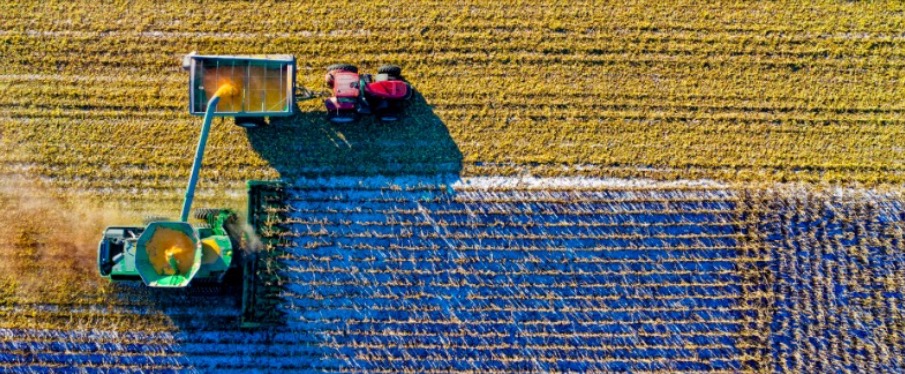Which Major Food Industry is Tech Ignoring?
The industry that we can't afford to turn a blind eye to

The Industry that Goes Under the Radar
When we think of exciting new technologies, our brains conjure up images of holograms, VR, folding phones, cloud tech and more. However, we rarely think of agriculture as being exciting in the food tech sphere. This, unfortunately, is a dangerous prospect because as the world's population continues to swell, new and innovative technologies will have to be developed in order to produce enough food for a potential 8.1 billion people by 2025.

The Problem with Agritech
While Agritech is just about the most important industry when it comes to the longevity of the human race, it's just not particularly exciting to think about. Envision your favorite tech companies and how they present a product of the future. Elon Musk touts his latest creations as the next step for transport, as something cutting-edge and tangible for the average consumer. Think of the iPhone and how much hype it's able to generate by flaunting beautiful design and innovative features. Now imagine a group of scientists going up on stage and presenting findings for the latest agricultural advancements. It simply does not have the marketing bravado or the wow-factor to woo the average consumer. A tomato is a tomato, whether it can be grown faster or not is not really the concern of the average consumer. Therein lies the problem. Agriculture is not sexy in terms of technological innovations, and thus, no one cares.

There is a perception, also, that little can be changed with regards to agriculture, but the reverse is true. [1]
" Agriculture contributes about a third of all greenhouse gases;
" A large amount of fresh food is destroyed globally each year;
" Climate change will impact how crops are produced in many parts of the world; and
" Obesity is ultimately impacted by the practices of our agricultural industry.
Unfortunately, innovations in Agritech are slow as they often involve having to wait for multiple harvest cycles to observe, test and measure any potential benefits. Slow results are hardly how the modern consumer thinks about tech. In fact, Agritech is aimed at farms rather than having a B2B or B2C model. This reduces the pool of people who would really be interested in agricultural-based tech innovations.
The Solution
Brand it Like an Exciting Tech Product
Take the concept of agriculture and make it relevant and exciting. Many Agritech startups are thinking of new and innovative ways to get their products and ideas into the public consciousness. For example Freight Farms, a company who designs ultra-efficient farms within the size of a shipping container has great brand marketing. They emblazon 'This is a Farm' on all their shipping containers to gain public attention and to draw curiosity.

Education
Teaching children from a young age that farming and agriculture is actually the future would greatly impact innovations in Agritech. If the next generation finds the idea of hyper-efficiently grown produce as stimulating as mobile phones, VR and the like, we'll definitely be on the right path.
Restaurant Produce Tracking
Restaurants and consumers have a part to play, too. Demanding better transparency and tracking for agricultural products will force change and breed new technologies. The more places you are able to track a product throughout its lifecycle, the more likely you are to trust said product. Again, change is slow, but it is possible.

[1] https://www.entrepreneur.com/article/331120